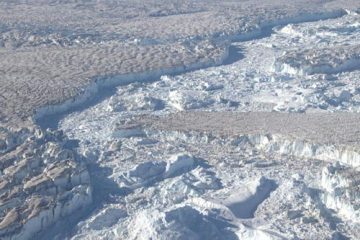Earth Sciences (also referred to as Geosciences), which deals with basic issues surrounding our planet, plays a vital role in the area of energy and raw materials supply.
Earth Sciences comprises subjects such as geology, geography, geological informatics, paleontology, mineralogy, petrography, crystallography, geophysics, geodesy, glaciology, cartography, photogrammetry, meteorology and seismology, early-warning systems, earthquake research and polar research.

The scientists led an international consortium that has now published the results in a special section of the journal Environmental Research Letters.

In a talk at the 2018 SSA Annual Meeting, Adrien Oth of the European Center for Geodynamics and Seismology discussed how he and his colleagues are using…

“This campaign achieved most of our primary objectives in surveying the state of Arctic ice,” said IceBridge's acting project scientist Joe MacGregor. “We've…

Interestingly, the loss of ice from the Northeast Greenland Ice Stream (NEGIS) took place not only during the warm Holocene period, but also during a period…

Infrasound waves oscillate at frequencies humans can't hear, but they're extremely useful for monitoring nuclear blasts because infrasound decays so slowly…

They expect their hypothesis to generate controversy. Geologists usually place the start of plate tectonics at about 3 billion years ago, while the new…